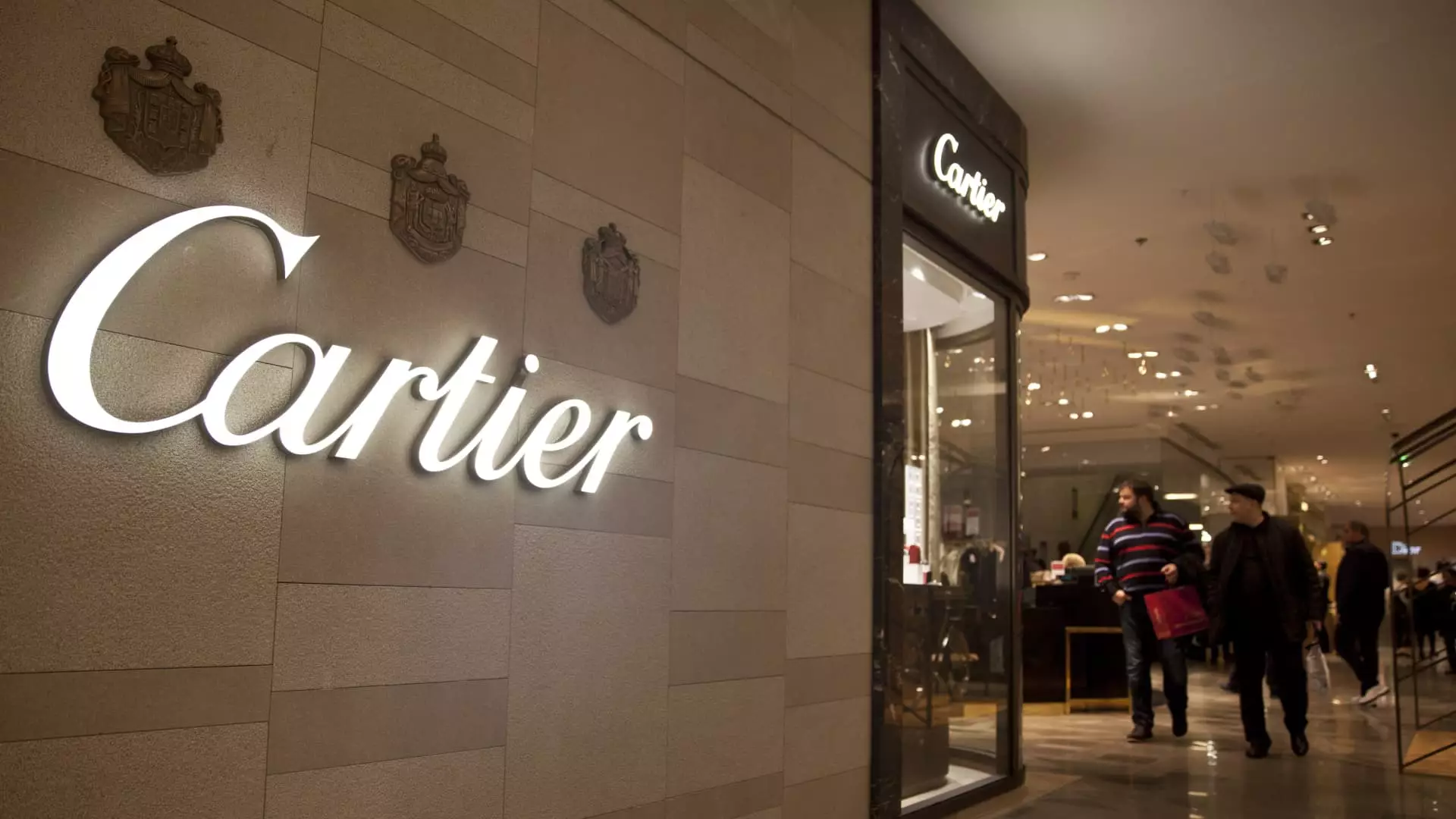Richemont, the esteemed parent company of the illustrious Cartier brand, has once again captured the spotlight with a remarkable 10% surge in fiscal third-quarter sales, despite facing significant challenges in the Chinese market. The luxury group recently reported sales figures reaching a staggering 6.2 billion euros ($6.38 billion), a historic high for the company during the final quarter of the calendar year. This substantial growth exceeds the 1% increase that analysts had cautiously predicted, reflecting a burgeoning confidence in the luxury sector and its recovery trajectory following recent economic headwinds.
The positive response from the market was immediate, with Richemont’s shares skyrocketing by an impressive 17.15% shortly after these figures were disclosed. This performance strongly suggests an optimistic sentiment among investors regarding the company’s strategic direction and potential for sustained growth.
While Richemont’s overall sales figures were nothing short of stellar, regional disparities offer a clearer picture of the current luxury landscape. The company enjoyed remarkable double-digit growth across various territories, with an exception noted in the Asia Pacific region, where sales suffered a notable 7% decline. This downturn was predominantly driven by a staggering 18% drop in sales across mainland China, Hong Kong, and Macau, regions that historically served as pillars of luxury demand.
This highlights a disconcerting trend; the luxurious spending habits of Chinese consumers, once robust and underpinning global luxury growth, have stumbled as the country grapples with the lingering effects of the Covid-19 pandemic and a faltering macroeconomic climate. The repercussions of this decline cannot be understated—it signifies a profound shift in consumer behavior that luxury brands must navigate carefully in the ongoing recovery season.
Market Response and Strategic Management Changes
Interestingly, Richemont’s share volatility throughout the past year underscores the evolving dynamics within the luxury market. Following the recent appointment of Nicolas Bos, the new CEO and former head of Van Cleef & Arpels, there has been a renewed investor confidence that appears to correlate positively with the company’s recent successes. The stock has progressively increased by an impressive 28.75% since the beginning of the year, echoing a sentiment of rebirth and the promise of more to come.
The luxury sector has long been characterized by its cyclical nature, often shaped by economic fluctuations and changing consumer preferences. As luxury brands recalibrate after experiencing turbulence, Richemont’s latest results suggest the potential end of a challenging chapter. Analysts, including Luca Solca from Bernstein, view the sales uptick as a vital indicator of a broader return to health in the luxury goods market.
As luxury brands increasingly seek growth avenues, the vital signs exhibited in Richemont’s results echo broader trends across key markets in Europe and the Americas. Both regions have reported robust domestic demand and noticeable tourist activity, fostering an environment conducive to luxury consumption. In contrast, the situation in China remains perplexing, revealing that the post-pandemic landscape is uneven and layered with complexities that stakeholders need to address.
The insight provided by analysts further emphasizes that the third-quarter results may signal a turning point, or “trough,” in the luxury market’s recovery cycle. Continuous observation of shifting consumer behaviors is essential, especially as the sector grapples with the impacts of global events continuing to create unpredictable market conditions.
Richemont’s recent fiscal performance reveals a dynamic interplay of challenges and opportunities that lie ahead for the luxury industry. As the company embarks on this recovery journey, the emphasis will likely be on adaptive strategies that cater to the evolving preferences of luxury consumers worldwide. By harnessing strong regional sales performances while addressing the complexities of the Asian market, Richemont appears poised to maintain its stature in an ever-competitive luxury landscape. As investors and analysts alike tune into these developments, the future of Richemont—and the luxury sector at large—remains a tantalizing aspect to watch in the coming quarters.

